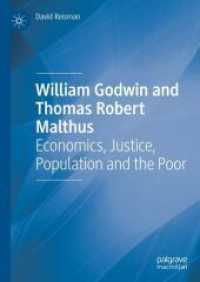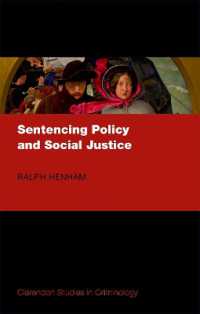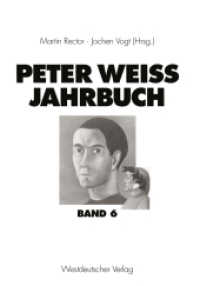- ホーム
- > 洋書
- > 英文書
- > History / World
Full Description
As the First World War came to a chaotic end, Europeans feared that a wave of crime and anarchy would sweep across their continent. The upheavals of the war and of the subsequent violent breakup of the Habsburg, German, and Ottoman empires magnified longstanding fears that an increasingly interconnected world offered the enterprising and unscrupulous new opportunities to break the law and evade capture. New kinds of international criminals and criminal enterprises demanded novel forms of international cooperation. Thus was born the International Criminal Police Commission, known today as Interpol. In the 1920s and 1930s, Interpol's police officials and the lawyers who collaborated with them created lasting programs to combat counterfeiting, sex and drug trafficking, terrorism, and human smuggling, and other forms of international crime, which they labelled "a scourge of humanity."
Drawing on press reports, police files, and criminal records in numerous languages and across multiple countries, David Petruccelli explores the origins of Interpol and the role Central and Eastern European actors played in developing criminal policing and law during the interwar period to bring stability to their region and reshape international institutions and norms. He shows how legal experts replaced a liberal focus on individual rights with an emphasis on a collective of international societies and of police officers who looked to the international sphere as a space for eluding the constraints of the rule of law at home. In doing so, their initiatives posed an alternative to the imperial and liberal internationalist programs pursued by many Western Europeans and Americans and laid the groundwork for more radical forms of persecution during the Second World War.
While bringing to life the stories of individuals involved in shady activities across borders, A Scourge of Humanity explores the vigorous policing and harsh criminal laws established by Interpol to combat their crimes and highlights illiberal forms of internationalism that have left a lasting mark on our world.








